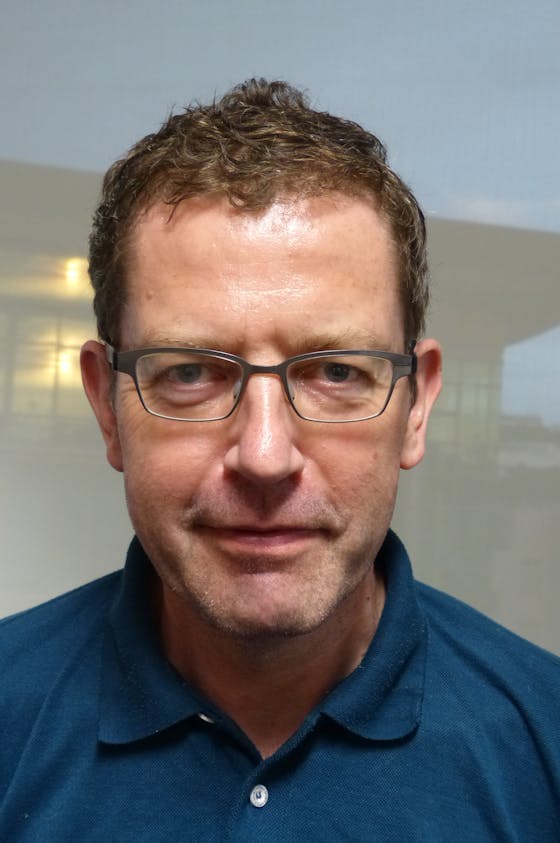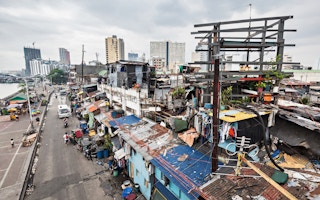The public sector undeniably has an enormous impact on the lives of citizens, from determining the quality of life, to providing physical infrastructure and access to healthcare, education, and other services. Its performance is firmly tied to a country’s developmental success and this relationship between growth and governance is a central pre-occupation for the UNDP Global Centre on Public Service Excellence in Singapore.
To continue reading, subscribe to Eco‑Business.
There's something for everyone. We offer a range of subscription plans.
- Access our stories and receive our Insights Weekly newsletter with the free EB Member plan.
- Unlock unlimited access to our content and archive with EB Circle.
- Publish your content with EB Premium.
Set up in December 2012, the relatively new outfit is a collaborative effort between the Singapore Government and the United Nations Development Programme (UNDP) to promote innovation in the public sector for developing countries. Nestled in a quiet corner of the sprawling National University of Singapore campus at Kent Ridge, the centre is also tasked with advancing debate and identifying solutions to the public service challenges of the day.
Its centre director, Max Everest-Phillips, say that its location in Singapore is key to its work given the role of the public service in the city-state’s success story. Fifty years might seem a long time, but “in the grand scheme of history, it’s a blink of the eye” and Singapore’s development in this span of time from a fishing village to one of the most dynamic cities is a remarkable achievement, he says.
The centre has set out to identify the factors that enable an effective public service and build knowledge which it can share with other developing states. In this recent interview, Everest-Philips shares more about the centre’s work, the role of the public service in sustainable development and its relationship with the private sector.
Can you tell us more about the Centre and its work since it opened?

Max Everest-Phillips, Director of the UNDP Global Centre of Public Service Excellence
The centre is a collaboration between UNDP and the Singapore government and reflects the strong relations but also the recognition of the role that the public service played in Singapore’s success story. We are trying to learn from the Singapore experience and identify what are they key factors for policy excellence in the public service.
We’re mandated to do two things. The first is promote evidence and knowledge. Second, is to act as a convening hub to organize meetings, exchange ideas, and fertilize new thinking on how to improve public service.
We came up with a framework with four key areas:
- How do you get the political leadership to work effectively with the administrative leadership? Whilst in Singapore this works effectively, this is a real source of frustration in many developing countries where both sides are at war with each other.
- Public service ethos and the intrinsic motivation of public officials . It is critical for the entire way the public service works - who gets recruited, promoted, pay structures and so on.
- The whole question of foresight/long term planning. How can developing countries benefit from the experience of Singapore? Developing countries should be masters of their own future, and to do so you need to be able to predict it, so you can create it. By predicting it, you are creating it, so how to do long-term planning to create resilience, adaptability, a sense of being masters of your own destiny rather than being victims of it. It’s an important transition.
- Innovation - it’s a problematic term. It is inherently positive, whereas change is more neutral term. When people talk about innovation, it’s really an expectation that what has been done is going to have a positive outcome although that’s not necessarily true.
We seek to challenge ways of thinking and provide developing insights. Development work is shifting rapidly from providing money and resources to help low-income countries, to helping them develop their own policy and learn from international experience to gain success.
Our role is to help UNDP and the development community make progress in this relationship between governance and economic growth. It’s a fascinating challenge once you start thinking about how the public service makes an enormous impact in everyone’s lives. One key issue is also how to communicate its importance - the image and of the public service tends to be at best somewhat dull and uninspired.
Can you elaborate on the public sector’s role in sustainable development? Does it rank high on the agenda in this region where many countries are still developing?
The key point is development is not sustainable if you do not have effective policies, or the capacity not just to plan but deliver things efficiently. The key aspect of sustainability is not that it’s effective but that people have faith in it. Research shows that when people have trust that they are being treated fairly by the state, development happens.
Beyond that, I think most people are also concerned about issues such as environmental degredation and climate change. I think civil society has been more effective everywhere. If you look back 20 years. there’s been huge progress. The problem is although most people are aware of it, few governments have the political will and capacity to tackle vested interests and create an effective system that promotes development in a way that is sustainable whether environmentally or politically. That is an enormous challenge.
There is some residual thinking that countries should grow first, then worry about sustainability. But that has been tempered by much greater awareness. While we’re deeply frustrated by the challenges that remain on poverty and environmental issues, there has been huge progress. Whether the progress is fast enough is indeed the real challenge.
The speed of development in Asia is fantastic and the poverty reduction is mind boggling – there are millions lifted out of poverty in the last decade which is a fantastic achievement, but the sustainability of the environment remains a major concern. Getting an effective public service is absolutely essential if you’re going to achieve sustainable development goals. The role of the public service is going to increase in importance. If the centre can contribute to this dialogue, that would be excellent.
What about the relationship between the public and private sector? How can they work together to achieve shared developmental goals?
The private sector brings resources and technical skills which are crucial for development, as not everything is state-run so it is important to get that relationship working well.
There’s a famous quote from (Winston) Churchill: “Some people regard private enterprise as a predatory tiger to be shot. Others look on it as a cow they can milk. Not enough people see it as a healthy horse, pulling a sturdy wagon.”
When public-private partnerships can be made to work, it is extremely beneficial. At the same time, it’s important to look critically at this area because it’s not always successful. In the UK, for example, certain private-public projects have been bogged down with legal agreements and documents. There is also concern that a lot of the fiscal burden was shifted to the future, with hospitals being built without the full cost being understood. So there is a complexity and transparency problem. So while the principle is good, I do think that developing countries need a lot of help making sure they are not victims of partnerships that are not working in their interest, or in the interest of development.
Getting that right, and helping the public service manage this relationship effectively is a very important function – one that the international community can help to provide.










